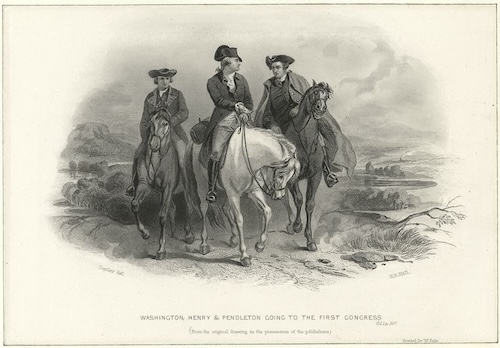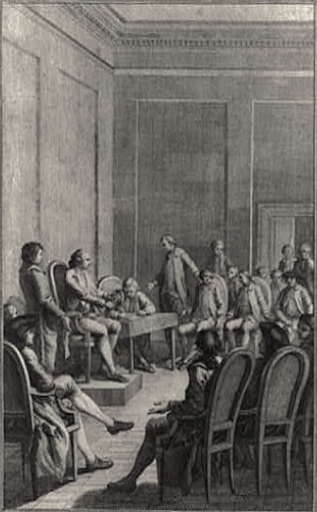In 1774, the British Parliament passed a series of punitive laws called the Intolerable Acts. These laws were meant to punish the colonies, especially Massachusetts, for protests like the Boston Tea Party. Parliament closed the port of Boston and placed the city under military control. Colonists viewed these actions as unfair and believed their rights were being violated.
In response, colonial leaders decided to convene a meeting to discuss a unified response. This meeting, known as the First Continental Congress, gathered in Philadelphia on September 5, 1774. Delegates from 12 of the 13 colonies attended (Georgia was absent). Their goal was to find a peaceful way to get Parliament to repeal the Intolerable Acts.

During the Congress, the delegates accomplished two major things. First, they issued the Declaration and Resolves to list their grievances and demand respect for colonial rights. Second, they agreed to an economic boycott of British goods through the Articles of Association. This boycott was set to begin on December 1, 1774, unless Britain repealed the Intolerable Acts. Local committees were created to enforce the boycott.
Before ending the meeting in October, the delegates agreed to meet again in May 1775 if Britain did not respond to their demands. Britain ignored the colonists' petitions and instead tightened control over the colonies. This lack of response only made tensions worse. When the Second Continental Congress convened the following year, the colonies were already on the brink of war.

